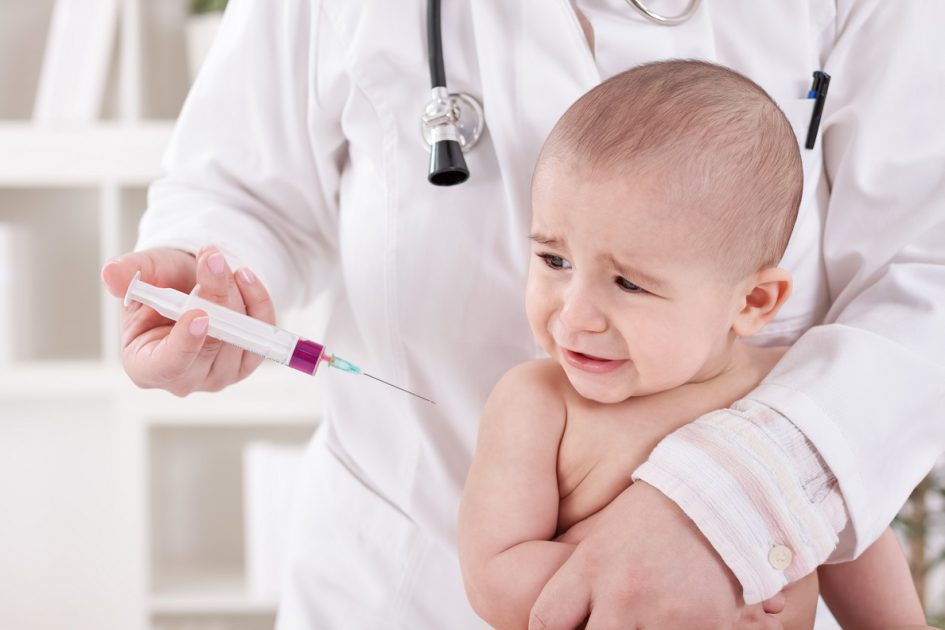As we described in our healthy lifestyle book Paleo Family, one of the most polarizing topics in the universe is that of vaccines. Secular humanists, Catholics, Libertarians, Democrats, and everyone in between have come to divisive conclusions concerning the topic. Read the plentiful online vaccine commentary, or even engage in the debate within one’s own family and among friends, and one will quickly experience the unmercifully sharp fangs which are exposed during vaccine discourse. So, why the venomous debate?
Many of the Catholic bioethical discussions concerning vaccinations have to do specifically with the vaccines derived from aborted fetal cell lines: should Catholics support societal benefits brought about by the deliberate, voluntary murder of preborn children, albeit years in the past? Is it morally acceptable to reject a vaccine due to its morally illicit development if that vaccine could potentially protect the life of unborn children (rubella)? The Pontifical Academy for Life’s statement approved by the Congregation for the Doctrine of Faith, along with several respectable Catholic moral theologians and bioethicists have made this assertion: no grave sin is committed by vaccinating one’s child with the morally illicit vaccines if there is no other alternative, supporting this claim by using the bioethical principles of “double effect” and considering the use of the vaccines by Catholics as “very remote mediate material cooperation” with evil.

It is important to note though that this is NOT passive acceptance of the tainted vaccines by the Church or individual Catholics. All Catholics who are aware of the presence of aborted fetal tissue ARE obliged to insist on an alternative. We have a duty as Catholics to oppose the gravely immoral act of abortion and its use of aborted fetal cell even if it does bring about some perceived good (the health of vulnerable populations). If you are a parent who consented to the any of the illicit vaccines and did nothing to voice your opposition, then your level of cooperation with the intrinsic evil of abortion is greater than someone who exhausted every avenue for the development of an alternative vaccine. Perhaps, just maybe, the developers and distributors of these morally-tainted vaccines would provide an alternative if the world’s billion Catholics would demand it.
But what about vaccines in general? Perhaps the biggest criticism of vaccine opposition is also the biggest criticism of libertarianism in general by many Catholics: do individual rights supersede the the common good? Are Catholics morally obliged to protect the common good by the use of vaccines even if it means placing one’s own child at risk of potential vaccine side effects/adverse events? There is no clear statement by the Church on this matter and in such a case, it is typically left to the individual’s conscience (assuming this conscience to be properly-formed by Church teaching). The Catholic Church places great emphasis on the conscience and considers its deliberations inviolable, although certainly capable of error.
Many Catholic entities (Catholic Medical Association, National Catholic Bioethics Center, etc) tend to support the “probable conclusion” of the Church would be that vaccines are indeed a moral good and persons should be urged to comply with vaccine public policy at the service of the common good. This conclusion, however, seems to be predicated on a few assumptions: vaccines are minimal risk; vaccines are ethically developed; and vaccines have been extremely beneficial for the welfare of society and individual persons, in particular the vulnerable. If a parent sincerely doubts the validity of the above stated premises after praying, seeking counsel and knowledge of the facts, the parent has no obligation to violate his or her conscience by putting their child at what they believe to be a grave risk. These parents can appeal to the right of priority of family under the principle of subsidiarity.
From the Compendium of the Social Doctrine of the Church:
Chapter 5, 214. The priority of the family over society and over the State must be affirmed. The family in fact, at least in its procreative function, is the condition itself for their existence. With regard to other functions that benefit each of its members, it proceeds in importance and value the functions that society and the State are called to perform[471]. The family possesses inviolable rights and finds its legitimization in human nature and not in being recognized by the State. The family, then, does not exist for society or the State, but society and the State exist for the family.
Every social model that intends to serve the good of man must not overlook the centrality and social responsibility of the family. In their relationship to the family, society and the State are seriously obligated to observe the principle of subsidiarity. In virtue of this principle, public authorities may not take away from the family tasks which it can accomplish well by itself or in free association with other families; on the other hand, these same authorities have the duty to sustain the family, ensuring that it has all the assistance that it needs to fulfill properly its responsibilities[472].
One thing is certain whether of the pro-vaccine or anti-vaccine camp, Catholics should seek the truth on the subject and their rhetoric should be charitable. Follow the very words of Jesus Christ, Truth Incarnate, who said in John 18:37: “Everyone who is of the truth hears My voice.” If one has not done due diligence in forming one’s conscience, seeking authentic knowledge, truth, and counsel through prayer, how can one claim the moral high ground on any topic?
 The Libertarian Catholic
The Libertarian Catholic

















